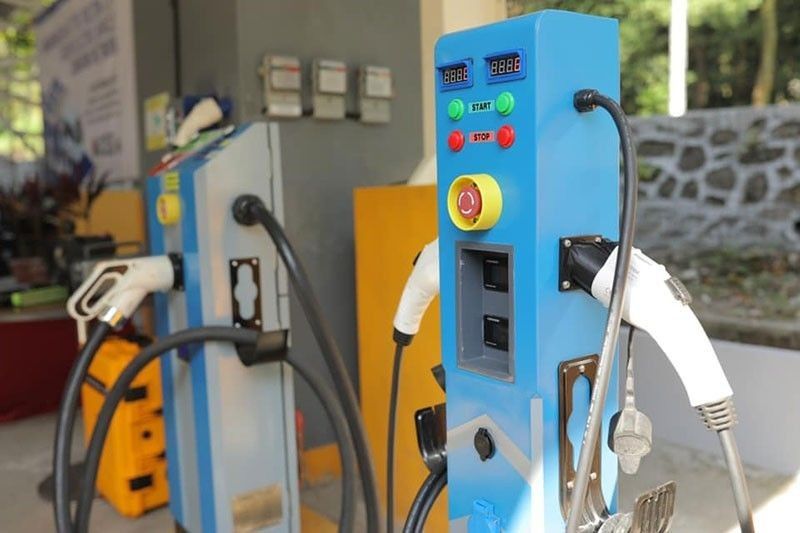Measure developing electric vehicle industry lapses into law

MANILA, Philippines — A bill which seeks to develop the Philippine electric vehicle (EV) industry and create a comprehensive roadmap for it, has lapsed into law.
The measure also requires companies, public transport operators and government units to ensure that at least five percent of their fleet should comprise of EVs.
The EV industry covers the manufacture, assembly, construction, import, trade and regulation of EVs, related equipment and their charging stations.
Republic Act (RA) 11697 or the Electric Vehicle Industry Development Act, made available to members of the media on Tuesday, said the government must make sure all of its rules related to the country's EV industry will promote an enabling and competitive environment for private companies.
The RA also calls for the creation of a comprehensive roadmap for the EV industry (CREVI), which will feature an annual work plan to ramp up development in the EV sector.
The measure states that several entities must make sure that EVs will account for at least five percent of their fleets within the CREVI's timeframe. These include:
- Industrial and commercial companies. Cargo logistics, food delivery, tour agencies, hotels, power utilities and water firms.
- Public transport operators. Minibuses, buses, jeepneys, vans, tricycles, taxis and transport network vehicle services.
- Local government units, national government agencies and GOCCs (government-owned and/or controlled corporations).
READ: What Filipinos need to know about electric vehicles
The Department of Energy is the lead agency tasked to promote EVs and the development of charging stations and other equipment.
Once transmitted to and received by the Office of the President, an enrolled bill can be signed into law, vetoed or allowed to lapse into law if not acted on within 30 days.
The consolidated bill lapsed into law on April 15.
Its passage comes amid the constant rise in local pump prices which have been affecting consumers and motorists since the start of the year due to supply issues. The Philippines' reliance on oil imports from the world market makes it susceptible to changes caused by global developments.
RELATED: Philippines not facing oil supply issues, DOE assures lawmakers
Ordinary motor vehicles are largely affected by these oil price hikes, but EVs may help mitigate such concerns as they are not dependent on diesel or gasoline.
Sen. Sherwin "Win" Gatchalian, who heads his chamber's energy committee, said earlier this year that the country should consider using EVs in the medium to long-term, transitioning to renewable energy and exploring new domestic oil and gas reserves— in order to make the country less susceptible to the global oil shocks.
- Latest
- Trending
































